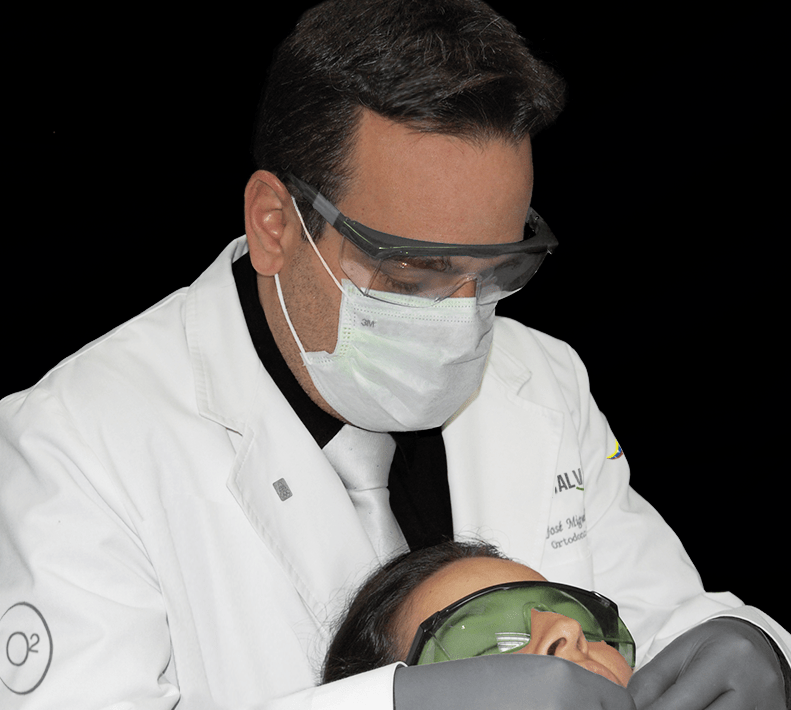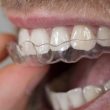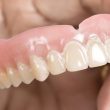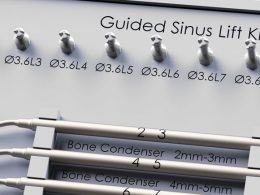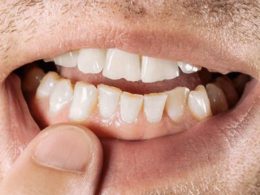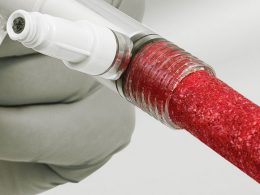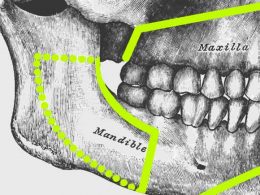Table of Contents
Dental implants are an excellent way to replace your lost and missing teeth. In fact, some people consider implants to be like a third set of teeth after your primary and permanent teeth.
As great as dental implants can be, and they really can be great, you may not be able to receive them if your mouth is not healthy. We have written in other posts about the importance of general health for the placement and retention of your dental implants. In this one, we will be addressing another issue that plays a role in whether you are able to receive implants.
That problem is gum or periodontal disease, and it is something that our Dentists at DENTAL VIP verify in any patient candidate for oral rehabilitation using dental implants.
Before Your Implants Are Placed
You can have iron health, but you also need healthy gums in order to receive dental implants.
When you visit us for a consultation, we will look for symptoms of periodontal disease. If we find anything, we will want to treat it and remove any infected tissue before we do anything else. Many people are not aware that gum disease is the leading cause of tooth loss among patients. It does not have to be that way, but for now, it is.
Your gums are vital to your oral health, but too many people neglect to do the things they should to keep their gums healthy. This means brushing and flossing on a daily basis. This mean visiting the Dentist or Periodontist for regular cleanings and examinations. And it means getting help when you notice the symptoms of gum disease.
If you ignore the bleeding, swollen gums and you ignore the sore and tender gums, then there may be other problems developing that you cannot see. Pockets can form inside your gum tissue, where bacteria can grow and build plaque that can become tartar. Your gum may begin to recede or separate from your teeth, and the disease may even attack the bone where the roots of your teeth are anchored in place.
This is when your teeth can start to feel loose or fall out.
Putting dental implants in someone who’s mouth was still in this condition would be ineffective. The bone and the gum tissue may need to be restored before any teeth replacement procedure could start. This can be accomplished with bone or gum grafts if needed.
After Implant Placement
Once your dental implants are in place, it is important that you continue to keep your mouth healthy.
Getting implants is a great way to restore the appearance of natural and the function of your natural teeth. You do not want to jeopardize that by ignoring your oral hygiene. You will still need to brush and you will still need to use dental floss or another kind of tool to remove bacteria from your mouth.
The flossing techniques may be a little different with implants, but they are still important. A great option is a water flosser, also called Waterpik. This may allow you to better target those space between your dentures or dental bridge and your gum tissue that you cannot clean with your toothbrush.
In Addition to Periodontal Disease, What Factors Impact Dental Implant Success?
Numerous factors can also affect the success of a dental implant. These include:
- Smoking Smoking can also cause dental implant failure because it restricts blood flow to the gums, slowing the healing process. Multiple research studies show that smokers can have a dental implant failure rate up to 30 percent. Being a smoker does not mean that you are ineligible for a dental implant, however, you may have a better outcome if you stop smoking one week prior to a dental implant and if you do not smoke for at least two months after implant placement.
- Insufficient Jaw Bone A successful procedure is also dependent on sufficient bone to support the implant. Without enough healthy bone, the Surgeon cannot surgically place the implant into your jaw. Bone loss can happen with osteoporosis. This condition develops when bone density decreases. Bones become fragile and there is the increased risk of fractures. Severe gum disease can also cause deterioration of bones in the mouth.
- Medical Conditions Dental implant failure is a possibility if you are diagnosed with an autoimmune disease or conditions like rheumatoid arthritis and diabetes, which causes the body to heal at a slower pace. Slow healing can prevent osseointegration, where the implant fuses or integrates with your jaw bone. The use of certain medications can also lead to dental implant failure. So it is important to discuss any medications (prescription and over-the-counter) that you are currently taking with our Oral Surgeon.
- Poor Dental Maintenance As we already explained, the ability to practice good oral hygiene after a dental implant also has an impact on the success rate. You are not an appropriate candidate for a dental implant if you have limitations that affect your range of motion or interfere with the ability to thoroughly clean your teeth.
- An Inexperienced Surgeon Not all Surgeons are created equal, and there is a chance of dental implant failure if you have an inexperienced Surgeon. Your Dentist may refer you to an Oral Surgeon, but you can also select your own. An experienced Surgeon knows how many implants to use to support tooth replacement. This is important because too few implants can cause excessive stress on the implant and failure. Also, working with a skilled Surgeon may prevent iatrogenic trauma, which is injury to the periodontal tissue by a Dentist’s activity. Choose a Surgeon with many years of experience.
Peri-Implantitis
Gum infections that occur in or around dental implants are sometimes referred to as peri-implantitis. From a practice standpoint, this can look quite similar to gum disease. Your gums can become red, swollen, or sore. Your gums may bleed when you brush your teeth.
Just like gum disease, this also can damage the bone around your implants, which can affect their security and their stability.
Your risk of peri-implantitis increases if you are a smoker, you do not practice good oral hygiene, or if you have uncontrolled diabetes.
Fortunately, peri-implantitis is treatable. If you notice any of these symptoms, call us as soon as you can to make an appointment.
What Are Signs of Dental Implant Failure?
If your dental implant fails early or late, the signs of a complication usually include: difficulty chewing, swelling and/or receding of the gums, mobility of the implant or prosthesis, and severe pain or discomfort.
“If You Do Not Practice Good Oral Hygiene and Take Care of Your Gums from Infections, It Is Very Likely that Over Time Your Implants Will Lose the Bone that Supports Them and Become Loose”.
DENTAL TIP
Prevention Is Cure in Health
Good oral hygiene is important no matter if you have all your teeth, are considering dental implants, or already have implants.
By developing good dental health habits, including routine examinations at our clinic, you may never need to replace any teeth. Should a tooth replacement become necessary, the Team at our Dental Clinic in Caracas, will gladly help you restore your smile.
Just remember that your gum health can affect whether you can receive implants and how well your implants will remain in place.
The Smile of Your Dreams Awaits You in Venezuela!
A cost saving alternative to your local dental care.
DENTAL VIP offers dental services in Caracas to patients from North America, Europe and the Caribbean.
We designed all our services to meet the special needs and expectations of our guests travelling for treatment:
- 50-70% lower prices.
- Volume discounts.
- Free consultation (X-ray, dental quote and transport).
- Guarantee policy for all treatments.
- Shorter operating times and no waiting list.
- Full travel assistance and permanent support.
- Postoperative care.
At DENTAL VIP we not only try to save you money, we also worry that you receive the best care for your oral needs and thus generate the best value proposition for your treatment, your trip and your stay in Caracas.
Do not sacrifice quality for price, visit us in Venezuela for your treatment and allow yourself the best. Do not settle for uncomfortable removable dentures, poor-quality dental implants, or short-lived temporary solutions.
Do not waste any more time, contact us right now!
